Her eyes are hazel, her lips are prominent, her nose is straight, her face is white, dotted with light freckles scattered across her cheeks and parts of her neck. She has a slender body and long gray hair, as if she were a girl from heaven peeking down to earth from behind the gray clouds of night.
Ababil Part Three Jumana with the Hazel Eyes
د.ا9.00
A novel that tells a mysterious love story that weaves together reality and fantasy in a poetic and captivating style.
Available on backorder
| Categories: | Literature, Novels, stories, Prose literature |
|---|---|
| Tags: | literature, love, Novels, Romance |
| Author | |
|---|---|
| Year | |
| Publisher | Arabic Literature Publishing Center |
You may also like…
-
Ababil
د.ا12.00“Ababil” takes place in a magical fantasy world, blending love, conflict, and myth within a thrilling dramatic framework.
-
Ababil Part Two Al-Jassasah
د.ا9.00A novel that explores worlds of mystery and horror with a captivating narrative style that blends fantasy with philosophical contemplation.
-
You are all my beautiful things.
د.ا7.00A novel that takes the reader on an emotional and intellectual journey, where feelings of love and personal challenges intertwine in a deeply moving and poignant narrative style.
-
Bring Me Back to You
د.ا9.00“Bring Me Back to You” by Ahmed Al Hamdan is a literary text that combines spiritual contemplations and emotional longing in a delicate, poetic style.
Related products
-
Umm Saad
د.ا2.13Ghassan Kanafani is a Palestinian novelist, storyteller, and journalist, and is considered one of the most famous Arab writers and journalists in the twentieth century. His literary works, including novels and short stories, were deeply rooted in Arab and Palestinian culture
د.ا3.55 -
What’s left is yours
د.ا2.13Ghassan Kanafani is a Palestinian novelist, storyteller, and journalist, and is considered one of the most famous Arab writers and journalists in the twentieth century. His literary works, including novels and short stories, were deeply rooted in Arab and Palestinian culture
د.ا3.55 -
The Alchemist
د.ا4.97The Alchemist (Portuguese: O Alquimista) is a novel by Brazilian author Paulo Coelho which was first published in 1988. Originally written in Portuguese, it became a widely translated international bestseller. The story follows the shepherd boy Santiago in his journey across North Africa to the Egyptian pyramids after he dreams of finding treasure there.
د.ا7.10 -
Two years, eight months and twenty-eight nights
د.ا7.10A book that blends fiction and nonfiction to explore issues of religion, identity and human conflict
د.ا8.52 -
For Bread Alone
د.ا4.97For Bread Alone , al-Khubz al-Hafi) is a controversial autobiographical work by Mohammed Choukri. It was written in Arabic in 1972 and translated into English by Paul Bowles in 1973.[1] In 1980, it was published in French as Le Pain Nu in a translation by Tahar Ben Jelloun. The novel has been translated into 39 foreign languages[2] and adapted into a French graphic novel by Abdelaziz Mouride [fr].[3]
د.ا7.10 -
In Zionist literature
د.ا3.55Ghassan Kanafani is a Palestinian novelist, storyteller, and journalist, and is considered one of the most famous Arab writers and journalists in the twentieth century. His literary works, including novels and short stories, were deeply rooted in Arab and Palestinian culture
د.ا4.97 -
Returning to Haifa
د.ا2.13Ghassan Kanafani is a Palestinian novelist, storyteller, and journalist, and is considered one of the most famous Arab writers and journalists in the twentieth century. His literary works, including novels and short stories, were deeply rooted in Arab and Palestinian culture
د.ا3.55 -
My journey from doubt to faith
د.ا2.13I refused to worship God because I was immersed in worshipping myself and admired the flash of light that began to flash in my mind with the opening of consciousness and the beginning of the awakening from the cradle of childhood.
This psychological state was behind the controversial scene that recurs every day. I also missed the origins of logic and I am dealing with logic and I did not realize that I am contradicting myself as I recognize the Creator and then say who created the Creator and make him a creature at the time when I call him a creator, which is sophistry itself.
Moreover, to say a first cause of existence requires that this cause must exist in itself and not dependent or need others to exist. If a cause needs a cause, this makes it one of the causal links and does not make it a first cause.د.ا3.55





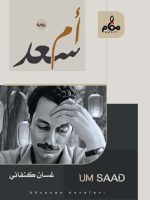
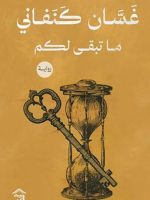
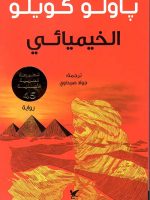
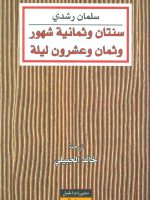
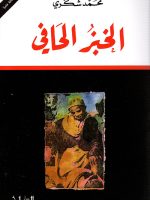
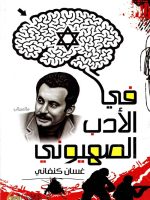
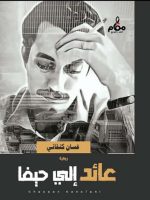
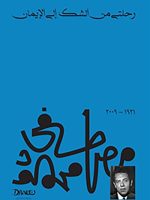
Be the first to review “Ababil Part Three Jumana with the Hazel Eyes”